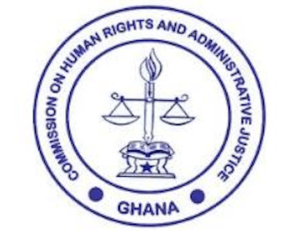Pragmatic steps needed to address gender inequalities – CHRAJ
 Mr Abdul-Rauf Alhassan, the Jirapa Municipal Director of the Commission on Human Rights and Administrative Justice (CHRAJ) has called for the need to take pragmatic steps to address the challenges of gender inequalities in society.
Mr Abdul-Rauf Alhassan, the Jirapa Municipal Director of the Commission on Human Rights and Administrative Justice (CHRAJ) has called for the need to take pragmatic steps to address the challenges of gender inequalities in society.
He noted with worry that these inequalities, if allowed to continue to fester would worsen the existing deprivation among women, thereby, affecting the vital role they would have played in the development of the nation.
Mr Alhassan made the call during a community forum at Ullo community in the Jirapa Municipality of the Upper West Region to sensitize the people on equal rights and opportunities for women and girls.
The Equal Rights and Opportunities for Women and Girls (EROP) Project Support Team organised the forum in the community after receiving training from the Africa Centre for Human Rights and Sustainable Development (AfCHuRSD).
The CHRAJ Director noted that one of such ways was to find a cure to the customary patriarchal system by getting Traditional Authorities and opinion leaders to agree on the commonalities shared by men and women as human beings.
He said agreeing on such commonalities would pave way for the creation of equal opportunities for women and girls to also take advantage and become empowered, adding that “If we do this we will see women playing their complementary roles very well”.
“If we move away from emphasising the biological make-up of women, then we will be winning the fight to achieve equal rights and opportunities for women and girls”, Mr Alhassan added.
He said women, when empowered, had a positive trickle-down effect on the whole family and this according to him would inure to the benefit of the entire nation.
Mr Alhassan pointed out that another pragmatic way was to provide a very formidable legal regulatory environment for women and girls, noting that there were gaps in the constitution especially with regards to their reproductive health and education.
He indicated that the right to health is completely missing in the list of rights and freedoms embedded in Chapter Five of the 1992 Constitution of Ghana.
He appealed for the amendment of Chapter Five to include specifically the right to health, which would now go down to extensively address the reproductive health rights of women and girls.
The CHRAJ Director noted that Article 25(a) of the 1992 Constitution sought to address the educational needs for all Ghanaian children, but did not make specific reference to girl child education considering the level of vulnerability of the girl child, which was a special need.
Mr Alhassan called on Parliament to look into the particular Article in the Constitution and amend it to place much emphasis on the vulnerability of girls as a special need to further strengthen the legal regulatory environment to give more space to the development of the girl child.
“If we fix the gaps in the legal framework, we will be able to attain the women empowerment agenda that we are pursuing, but if we fail, we will only be singing in principle but practically not doing anything”, he said.
He also lamented the discrimination against girls in school enrolment, saying all these were pointers for them to pay attention to their plight by ensuring an enabling legal environment for them.
Naa Hassan Bababoorinugine, the Chief of Ullo urged parents to stop pushing their children into child marriage and rather prioritized their education for a better future.
He advised girls to listen to their parents and exercise great discipline that would enable them to stay in school and complete successfully.
The EROP project sought to ensure that women and girls in Ghana realised their human rights and utilize opportunities to better their lot.
It is being funded by the Dutch Embassy in Ghana and being implemented in partnership with GH Alliance, AfCHuRSD, and WOMEN IN NEED (WIN).
Source: GNA
